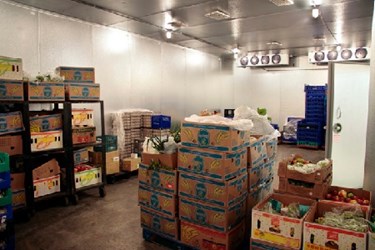Saving Food In Developing Nations With Cold-Chain Processes
By Melissa Lind, contributing writer

As global demand has increased for fresh food from exotic locales, less-developed countries have resorted to chemical preservation of perishables. While this was not a recognized problem for many years, technology has advanced to allow testing for contamination and avoid those products preserved with substances such formalin.
Large nations, such as Brazil and the Philippines, have been able to provide fresh fruit to far regions of the world for years. However, small countries, such as Bangladesh, have not been able to do so without using toxic additives. The reasons for the inability have become evident as studies have shown that these smaller, developing countries lack essential cold-chain resources — refrigerated transport unites and cold storage facilities.
Case Study: Wireless Temperature Monitoring Cuts Cost Of Loading Refrigerated Trucks
Bangladesh, in particular, has serious infrastructure and logistical problems with a lack of monitoring and licensing authorities for commercial farming. The country has also be subject to extensive profit mongering with premature harvesting and businessmen who see that if a small amount of an additive can preserve fish for a few days, a much larger, toxic amount can preserve it for weeks. This has led to wholesale food contamination in the small country. But, Bangladesh is not the only area where this has occurred. It is much-less common in developed nations with improved infrastructure, cold chain resources, and effective testing for contamination, none of which Bangladesh currently has.
Countries in similar situations as Bangladesh may be in luck as there are efforts to establish cold-storage facilities using solar mini-grids. However, this endeavor may take some time. China has been a role model for sustainable, cold-chain capabilities. Back in 2010, the Chinese government built hundreds of facilities with cold storage capabilities at rural marketplaces to ensure safe food for its residents. Coming directly from undeveloped processes, China has established a regional-management system with involvement of local governments, industry and enterprise members, consumers, and the media. The country has been able to eliminate risks by ensuring that the food-supply chain is monitored all the way from farm to table.
White Paper: The Impact Of Big Data On The Cold Chain
The establishment of such practices in small, developing nations could dramatically increase the export capabilities of local food producers. Currently, most developed nations would not allow fresh food imports from these areas, but the governments will have to see beyond the initial cost and trouble to the market potential beyond.
